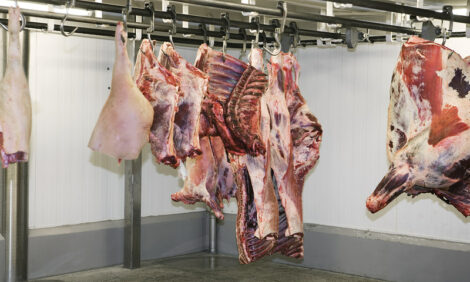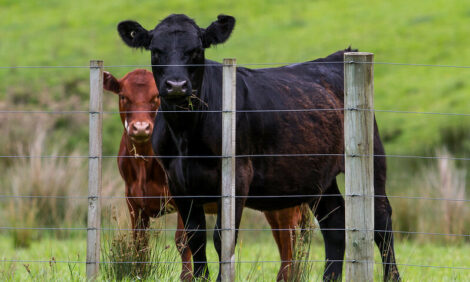



EAC Secretariat and ILRI Unite Over Livestock
TANZANIA - The East African Community Secretariat and the International Livestock Research Institute (ILRI), an international research institute with its headquarters in Nairobi, Kenya have signed and exchanged a Memorandum of Understanding (MoU) that aims to establish a long-term relationship for purposes of exploiting their complementarities in research knowledge generation and its application to further their respective missions.The MoU, signed by the Secretary General of the East African Community, Ambassador Juma Volter Mwapachu on behalf of the East African Community, and Mr. Carlos Sere, the Regional Representative, on behalf of the International Livestock Research Institute, spells out clearly areas of cooperation between the EAC Secretariat and ILRI.
In particular, ILRI and EAC are to explore possibilities of collaborating in research and its application based on the following ILRI’s research competence areas; Targeting and Innovation; People, Livestock and Environment; Expanding Market Opportunities; Biotechnology; and lastly Regional Strategic Analysis and Knowledge Support System.
According to the MoU, each Party shall provide such staff support, institutional services and materials as may be deemed necessary for the implementation and achievement of the Main Objective of the MoU. The MoU carries no financial commitment on either Party.
The signing of the MoU comes at a time when the Partner States are putting in place several initiatives to harmonise their policies and programmes on livestock and fisheries resources within the region.
According to the EAC Senior Livestock and Fisheries officer, Mr. Timothy Wesonga, the EAC Livestock Division has initiated a number of activities aimed at enhancing livestock production, productivity, marketing and trade for increased incomes.
In addition to the bid to harmonize regional livestock policies, the EAC is working on utilization and conservation of farm animal genetic resources, livestock marketing and trade issues, pastoralism and drylands development amongst others.
To ensure smooth livestock trading, the EAC has already developed Sanitary and Phytosanitary Standards (SPS) measures and procedures for animals, fish and fisheries.
Further, the EAC Secretariat has put in place various structures to advise and guide the prevention and control of transboundary animal diseases. These include the EAC Regional Steering and Technical committees on transboundary animal diseases. “It is due to the importance of livestock trade, human and animal welfare that the EAC has given a lot of emphasis to the control and prevention of transboundary animal diseases”, asserted Mr. Wesonga.
The Livestock sector at the EAC works closely with the human health sector and other stakeholders in the control of transboundary animal diseases. The EAC has an ongoing project funded by the European Union to prepare the EAC region to respond to avian influenza in the event of an outbreak. The project objective is to contribute to the socio-economic welfare and public health in the EAC by minimizing the impact of Avian Influenza (AI).
In addition, EAC Secretariat is making initiatives to harmonize the regional fisheries policies in liaison with LVFO and LVBC which are EAC institutions. Proposals have been prepared under the 10th European Development Fund (EDF) on development and management of marine fish and fisheries and promotion of aquaculture.
This is meant to reduce fishing pressure on the inland water bodies especially the Lake Victoria. Of late the inland water bodies have come under intense fishing pressure, resulting into reduced catches and fishing of juveniles. This is not sustainable and hence the EAC initiatives to reduce fishing pressure on the inland water bodies by promoting aquaculture and utilizing coastal marine fish and fisheries resources.
Closer collaboration and partnering of EAC and ILRI is going to assist the region make informed decisions for the faster development of the EAC livestock industry.
TheCattleSite News Desk


